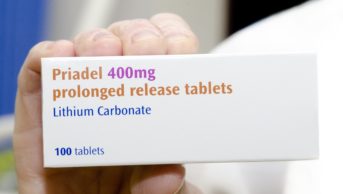
Shutterstock.com
The government has asked drug manufacturers to rebuild six-week stockpiles of medicines in time for the UK’s transition period for leaving the EU ending on 31 December 2020.
The instructions come in a letter to medicine manufacturers from Steve Oldfield, chief commercial officer at the Department of Health and Social Care (DHSC), two years after the government first told the pharmaceutical industry to stockpile in preparation for a no-deal Brexit in August 2018.
Oldfield said in the letter, sent on 3 August 2020, that the buffer stocks should be built up despite global supply chains coming “under significant pressure, exacerbated by recent events with COVID-19”.
However, pharmaceutical industry leaders have warned that companies will need extra support to rebuild the stockpiles, while others may struggle to build stockpiles at all for some medicines, due to the pandemic.
The medicine stockpiles are part of wider contingency planning in case of “any reduced traffic flow at the short straits [of Dover] in a reasonable worst-case scenario,” the DHSC letter said.
“Holding additional stock in the UK provides a further buffer against some disruption and we believe, where it’s possible, it’s a valuable part of a robust contingency plan,” it added.
The letter also said that suppliers will be asked to confirm their contingency plans with the government, “and in particular the balance between stock-holding in the UK, re-routing away from the short straits and readiness for new customs and border arrangements”.
“We encourage companies to make stockpiling a key part of contingency plans, and ask industry, where possible, to stockpile to a target level of six weeks’ total stock on UK soil,” the letter said.
The government previously would not confirm whether contracts for warehousing to hold the medicines stockpiles had been extended beyond the original June 2020 cut-off date.
However, the letter states that the government “does not propose to intervene in this market at this time”, as use of the warehousing space previously offered to manufacturers “was extremely low”.
Warwick Smith, director general of the British Generic Manufacturers Association, said manufacturing demands during the peak of the COVID-19 pandemic meant “that not all companies will be able to create a six-week stockpile for all medicines.
“So an approach encompassing all of the elements in the government’s letter is the right way to go, including alternative routes established by manufacturers and the government, and ensuring that there is total clarity on the procedures that our members and their logistics suppliers will need to follow at the Channel ports,” he said.
David Watson, executive director of commercial policy at the Association of the British Pharmaceutical Industry, said that with pressure from the pandemic “likely to continue over the coming months, it is imperative that the government works closely with [manufacturers] to provide the support they need to plan for the end of the transition period.
“While today’s letter means that preparations can proceed, detailed guidance is still urgently required from the government on issues like freight capacity, ferry routes and the Northern Ireland protocol.”
The letter from the DHSC notes that it is “seeking to secure capacity on the government-secured freight capacity to support the health and social care sector”, with more information to come. However, it has retained “express freight service arrangements… to support the urgent movement of medicines”.
A spokesperson for the manufacturer Teva said it was aware of the letter from the DHSC, and that it was “in regular contact with them and other stakeholders about Brexit preparations and have plans in place for safety stock of medicines if needed.
“We’re as confident as we can be that no patient will go without their Teva medicine because of Brexit.“
A spokesperson for the manufacturer Accord said it had “been anticipating this situation”.
“Over the last three years Accord has made several strategic investments in the UK, providing us with two UK-based manufacturing plants and the largest manufacturer-owned warehouse and distribution centre in the UK by pallet storage locations, all of which has put us in a strong position to maintain the supply of medicines and demonstrate our continued commitment to the UK and NHS,” they said.
Sandra Gidley, president of the Royal Pharmaceutical Society, said: “As we head into winter, combined with the potential of a second wave of COVID-19, the government must consider all the options as part of prudent contingency planning to support patient care.
“This should include changes in medicines legislation to empower pharmacists in the community to use their professional judgement to make simple substitutions when a medicine is out of stock.”
Legislation came into force on 1 July 2019 enabling pharmacists to dispense against a government-issued serious shortage protocol instead of a prescription without going back to the prescriber first, in an effort to manage medicines shortages.
You may also be interested in

Competition watchdog launches investigation into discontinuation of bipolar drug

Warwick Smith: ‘The pandemic has removed factors that allowed us to be resilient for Brexit’
